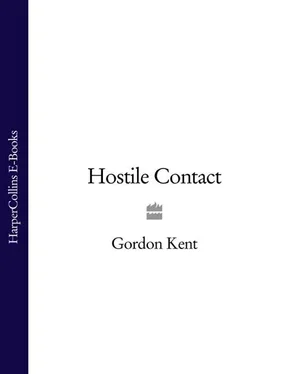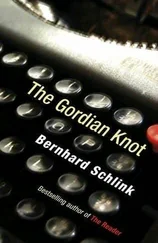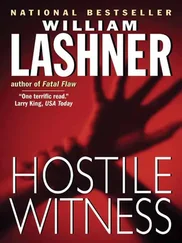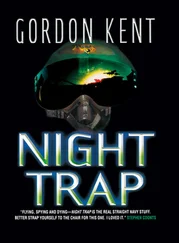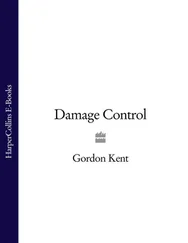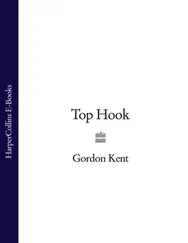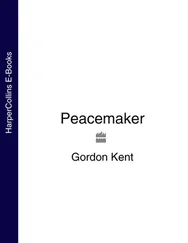Lao made his face, he hoped, impassive; in fact, it looked wooden.
“Chen has disappeared,” the General said again. “I want you to find him.” Lao sensed the third man’s movement, perhaps a gesture of a hand. The General frowned bitterly. “Finding him is of the highest priority.”
The air of tension, then, the stories of rolling heads and ended careers, might have the loss of a senior intelligence officer as its cause. Even before he had received the orders to come to Beijing, Lao had got ripples of it in Dar es Salaam—somebody’s inability to make a decision, the absence of a senior official from his office.
The civilian moved into the space by the General’s desk and began to speak in a low, guttural voice.
“Three weeks ago, Colonel Chen went to northern Pakistan to meet with an American agent. He has not been seen since.”
The man was tall, rather European in face—from one of the western provinces, Lao thought, feeling the dislike he couldn’t avoid for those people, not “real” Chinese. He had rather long and unkempt hair, sallow skin; there was something uncouth about his rapid gestures and his rumpled clothes. His voice was hoarse and heavily accented. An odd type to be a power in military intelligence. Lao thought he must be a party hack.
“The meeting place was a peasant village,” he went on. “At night. Chen took twelve special forces soldiers. Nine were killed outright; two have died since; one is not expected to live. We interviewed the people of the village. Typically narrow-minded and fearful, hard to get anything out of.” He blew out smoke, made a chopping motion with the hand that held the cigarette. “Still. A few talked. There was shooting, they said. Then an aircraft came in and landed on the road below the village, then took off again.” He took two strides toward the door, his big feet making thudding sounds right through the carpet, spun and started back, waving out of his path the smoke that hung there. “One fellow who runs some sort of hostel said he had a ‘Western’ customer, who rented a bed and then disappeared. Caucasian, he said, didn’t speak the language but had a computer that gave him some phrases. We found cartridge cases from Spanish and Pakistani ammunition, plus our own, of course.” He blew out smoke and stood by the window, staring out. “Seven local civilians killed—we think by a shaped charge that Chen had brought with him. He blew a hole in an old tower, no idea why. Enemy inside, maybe. Doesn’t matter.” He turned back to the room and said, seeing some look on Lao’s face, “No, hold your questions until I’m done.
“The aircraft. Karachi had had an emergency declared by an American naval aircraft the day before, but the aircraft never appeared. Went into the sea, maybe, they thought. Then, several hours later, an aircraft landed and took off from the village where Chen had been, and then an American naval aircraft exited Pakistani airspace while two American F-18s flew cover. Two of ours tried to engage and were shot down. The American carrier USS Thomas Jefferson was within recovery distance in the Indian Ocean.
“Probable scenario: the Americans flew a combat team in under Pakistani radar, using the fake emergency for cover if they were caught, landed the aircraft somewhere up near the village, and later picked up the combat team after they had killed Chen’s men—and either killed or captured Chen and the American agent he had gone to meet.
“That is one scenario. Knowing American military doctrine, we did not find evidence in the village of American special forces. Ammunition casings were relatively few for so many men, and limited to shotgun, 9 mm, .41 magnum, and—peculiar—.38 special. The .41 magnum came from a Desert Eagle that was left behind. Scenario: the American agent brought his own shooters, either as a backup team because the zone was hot or because he feared Chen.
“The agent—now I am telling you facts so tightly held that you will be only the fourteenth person in China to know them—the agent was an American CIA official named George Shreed. He had been giving Chen good material for years. Vetted, checked, proven. He was supposed to have met Chen in Belgrade a day earlier, but he cancelled that meeting and set up the one in Pakistan. Which fell apart into a lot of shooting. Only today are we beginning to learn that this Shreed had apparently fled the US two days before, not using the escape plan we had given him, not using our considerable resources, not informing Chen. And he may have offered his services to the Israelis before he finally did contact Chen.
“Scenario: Shreed faked flight from the US, with the connivance of his CIA superiors, lured Chen to a meeting, and captured him with the help of a CIA team; they were then picked up by a US Navy aircraft and flown to the Thomas Jefferson.
“Or: Shreed, who has shown signs of instability and whose wife recently died, had a mental seizure and set out to destroy his Chinese control.”
He took out a wrinkled package of Pear Blossoms and tapped one out. “Or: we have no idea.” He flicked the lighter, a cheap plastic one in bright peacock blue and lit the cigarette. He stared at Lao. “If the Americans have Chen, we will have been badly hurt. That is not your problem. If the Americans do not have Chen, then your problem is to find him and to bring him back. To fail to bring him back will be to fail the nation and its leaders. Unh?” He smoked, staring at Lao. “All right, ask your questions.”
“Can I investigate this village in Pakistan?”
“Yes. I warn you, it is still a hot zone; Pakistan and India are shooting over Kashmir. We will give you everything we found in the village.”
“Forensics?”
“Get it done. Our country team didn’t have the time or the skill for forensics.”
“What about the American, Shreed?”
The man took another turn to the window and stood there with his back to Lao. The General, still smiling, sat looking at Lao. Finally the civilian turned and said, “Shreed is a brilliant man. He has been a productive agent for twelve years. Still, like any agent, he could be a double. Scenario: the shooting in the village was a cover; Shreed and Chen were pulled out, and now both are in America.”
“Do you know that?”
“I don’t know anything!” A hank of the man’s coarse hair fell over his face, and he pushed it back with his free hand, hitting himself in the forehead as he did so as if punishing himself. “The Americans are saying that Shreed is dead. They are having a funeral, trumpeting the death rites. Is that natural?”
“Do you think Shreed is dead?”
“Don’t ask me! What do you think we want you for?”
Lao could see that the General was leaning his elbows on a file. The characters on the outside of the file were from an old code word. American Go. Lao had heard the name whispered before. High-level material from Washington, sometimes political, sometimes espionagerelated. So American Go was George Shreed. Lao wanted to laugh aloud. Chen had been running a penetration of the Operational Directorate in the CIA. No wonder he won every fight in Beijing.
The Westerner and the General talked about details for some minutes—Shreed, Chen, the reason why Chen himself had gone to Pakistan to meet with Shreed. Neither the General nor the civilian was being quite forthright, Lao thought. He wondered if he was simply being set up so that they would have a scapegoat. They talked almost as if he wasn’t there. He wanted to smoke, felt too junior to light up, although both older men were smoking hard.
“If Chen isn’t in America but is dead or wounded—” He pushed himself in like a timid housewife at a fish stall.
“Yes, yes—?”
Читать дальше
